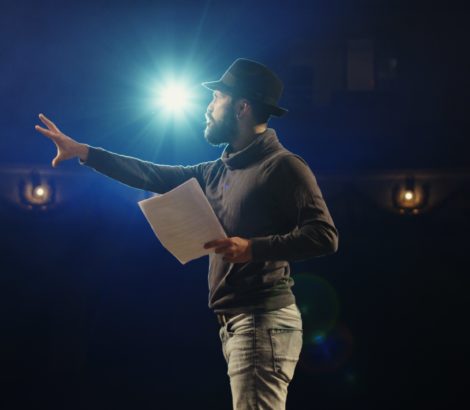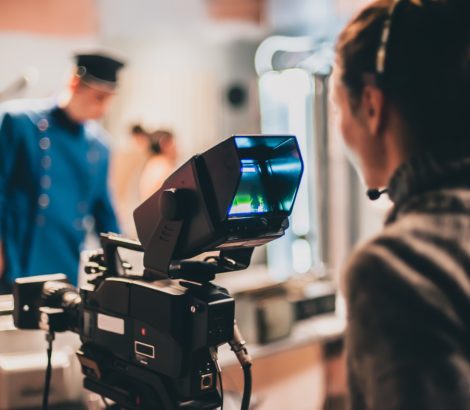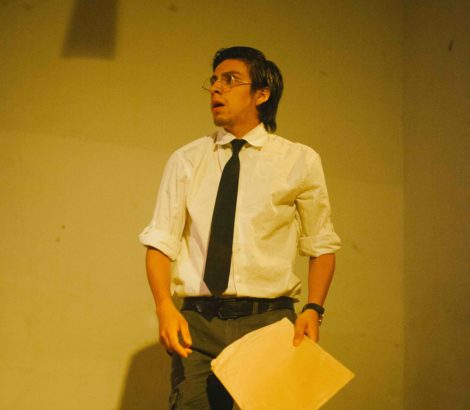Sometimes we just need a fast but specific way into the scene. These five questions can help get you clear about the character and the scene when you don’t have time to go deeper. (And they are questions you should be asking yourself about the scene when you do have time to go deeper.)
Have you ever gone in for an audition that you spent countless hours preparing and they ask you to read for another character on the spot? Or they change the sides on you? Or you get an audition but it’s for that same day and you haven’t showered and it will take at least an hour to get there and park?!
Actors often find themselves facing the abrupt bewilderment of a cold read. It’s frustrating when you don’t have time to prepare and you’re expected to do your best work. Here are some questions you can ask yourself (as the character) to help you make choices very quickly and nail your audition.

1. Where am I coming from?
The moment before the first line of dialogue is very important. That moment before is actually the beginning of the scene, the first line of dialogue is not. Take a beat to establish where you are, what you are doing and reveal the character’s point of view of what is happening. Don’t over-indulge here, but have fun living with the character before you rush to the dialogue. Especially if you have the first line – you have so much more control over how the audition starts!
Knowing where the character is coming from, physically and emotionally (in other words, literally and figuratively), will inform the emotional life of the scene out of the gate. If it’s not indicated in the script, make a choice (a specific choice!) that makes sense in the context of the story.
2. Where am I going?
What’s your destination? Is this conversation happening when you’re on your way out the door or walking to your car? Then don’t forget that your character is on their way to some other place. Almost always. For example, if the scene starts with your character walking through the door after a long work day – what were you intending to do? Get your jammies on, go take a shower, make a snack because you’ve had a long day and you’re starving? This may never obviously show in your audition but giving yourself a bit of urgency is almost always a great choice. Why? Because it raises the stakes. The higher the stakes, the stronger the choice. Also, it helps you to not anticipate the next moment. Always look for opportunities to make the character a real, full human being with things to do and places to go.
3. What is literally happening in the scene?
It’s never just a conversation. If a scene is in a script, it’s revealing some piece of information to move the story forward. Identify what it’s about. Maybe this is the scene when your character finally admits they have had enough and stands up for themselves. So the actable thing you’re doing in the scene is standing up for yourself. Then you know that in this scene you need to make choices that will get your power back, for example. Find the actable thing in the scene to work at – it will lead you to strong choices.
4. What am I expecting to happen?
Be careful not to play the end of the scene! Your job is to know what the character knows when the scene starts and then listen and discover. What are the consequences if you don’t get what you want? You don’t know if you’re going to get your way when the scene starts. You can’t anticipate what happens. The best way to make sure you don’t anticipate, is to make a choice to expect the opposite of what actually happens in the scene. For example, if it’s a break up scene but you don’t know the break up is happening until the other character reveals it a few lines in, you should prepare on trying to get the other person in the mood to make love. Maybe you’ve been planning your speech on how to tell them you want them to meet your parents. If that’s what you think is going to happen and then you really listen, the audience (in this case casting directors) get to see you making a discovery. Always look for opportunities for discovery!
What is my point of view?
If you know the character’s point of view – of the other character(s), of the situation – the scene will start to make sense right away. Again, you want to make sure that whatever choice you make is in context with the rest of the story, but make a strong choice about point of view and you’ll gain a quick and clear sense of the character and the tone of the scene. This can sometimes lead you to a clear intention with tricky scenes, keep it handy in your toolbox.

Obviously, if you have more time, your preparation should cover a lot more ground. But in a pinch, these 5 questions can help you get some clarity really quick. Remember, you are allowed to ask for time. You don’t have to do it on the spot. If they give you something to read you’ve never seen before, ask for time to prepare and ask them how much time you can have. Don’t rush it. They want to see your best work. Give it to them. Break a leg!












